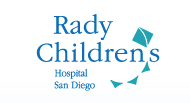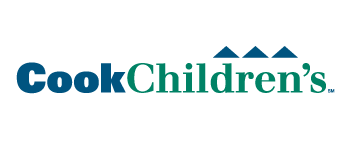A Trial of Two Fixed Doses of ZX008 (Fenfluramine HCl) in Children and Young Adults With Dravet Syndrome
| Status: | Active, not recruiting |
|---|---|
| Conditions: | Neurology |
| Therapuetic Areas: | Neurology |
| Healthy: | No |
| Age Range: | 2 - 18 |
| Updated: | 11/11/2018 |
| Start Date: | January 2016 |
| End Date: | June 2019 |
A Multicenter, Randomized, Double-blind, Parallel Group, Placebo-controlled Trial of Two Fixed Doses of ZX008 (Fenfluramine Hydrochloride) Oral Solution as an Adjunctive Therapy in Children and Young Adults With Dravet Syndrome
This is a multicenter, double-blind, parallel-group, placebo-controlled, study to assess the
efficacy, safety, and PK of ZX008 when used as adjunctive therapy for uncontrolled seizures
in pediatric and young adult subjects with Dravet syndrome. After an initial Screening and
Baseline charting of seizure frequency, subjects who qualify for the study will be randomized
(1:1:1) to receive either ZX008 (0.2 mg/kg/day, 0.8 mg/kg/day; maximum dose: 30 mg/day) or
placebo. Randomization will be stratified by age group (< 6 years, ≥6 to 18 years). All
subjects will be titrated to their randomized dose over a 14-day Titration Period. Following
titration, subjects will continue treatment at their randomly assigned dose over a 12-week
Maintenance Period. Subjects exiting the study will undergo a 2-week taper, unless they
enroll in a follow-on study. Subjects will be followed for post-study safety monitoring.
Parents/caregivers will use a diary daily to record the number/type of seizures, dosing, and
use of rescue medication.
efficacy, safety, and PK of ZX008 when used as adjunctive therapy for uncontrolled seizures
in pediatric and young adult subjects with Dravet syndrome. After an initial Screening and
Baseline charting of seizure frequency, subjects who qualify for the study will be randomized
(1:1:1) to receive either ZX008 (0.2 mg/kg/day, 0.8 mg/kg/day; maximum dose: 30 mg/day) or
placebo. Randomization will be stratified by age group (< 6 years, ≥6 to 18 years). All
subjects will be titrated to their randomized dose over a 14-day Titration Period. Following
titration, subjects will continue treatment at their randomly assigned dose over a 12-week
Maintenance Period. Subjects exiting the study will undergo a 2-week taper, unless they
enroll in a follow-on study. Subjects will be followed for post-study safety monitoring.
Parents/caregivers will use a diary daily to record the number/type of seizures, dosing, and
use of rescue medication.
Key Inclusion Criteria:
- Male or non-pregnant, non-lactating female, age 2 to 18 years, inclusive as of the day
of the Screening Visit.
- Clinical diagnosis of Dravet syndrome, where convulsive seizures are not completely
controlled by current antiepileptic drugs.
- Must have a minimum # of convulsive seizures per 4-week period for past 12 weeks prior
to screening
- All medications or interventions for epilepsy must be stable for at least 4 weeks
prior to screening and expected to remain stable throughout the study.
- No cardiovascular or cardiopulmonary abnormality based on ECHO, ECG or physical
examination
- Parent/caregiver is willing and able to be compliant with diary completion, visit
schedule and study drug accountability.
Key Exclusion Criteria:
- Pulmonary arterial hypertension.
- Current or past history of cardiovascular or cerebrovascular disease, such as cardiac
valvulopathy, myocardial infarction or stroke.
- Current or past history of glaucoma.
- Moderate or severe hepatic impairment.
- Receiving concomitant therapy with: anorectic agents; monoamine-oxidase inhibitors;
medications that act via serotonin including serotonin reuptake inhibitors;
atomoxetine, or other centrally-acting noradrenergic agonist; or cyproheptadine.
- Currently receiving or has received stiripentol in the past 21 days prior to
Screening.
- Currently taking carbamazepine, oxcarbamazepine, eslicarbazepine, phenobarbital, or
phenytoin, or has taken any of these within the past 30 days.
- Positive result on tetrahydrocannabinol (THC) or cannabidiol (CBD) test at the
Screening Visit.
- A clinically significant medical condition,that would interfere with study
participation, collection of study data, or pose a risk to the subject.
We found this trial at
20
sites
Saint Barnabas Medical Center As a Barnabas Health facility, Saint Barnabas Medical Center is committed...
Click here to add this to my saved trials
Click here to add this to my saved trials
Children's Hospital of Philadelphia Since its start in 1855 as the nation's first hospital devoted...
Click here to add this to my saved trials
University of Utah Research is a major component in the life of the U benefiting...
Click here to add this to my saved trials
Rady Children's Hospital - San Diego Rady Children's Hospital-San Diego is the region’s pediatric medical...
Click here to add this to my saved trials
Click here to add this to my saved trials
Children's Hospital Colorado At Children's Hospital Colorado, we see more, treat more and heal more...
Click here to add this to my saved trials
Boston Children's Hospital Boston Children's Hospital is a 395-bed comprehensive center for pediatric health care....
Click here to add this to my saved trials
Click here to add this to my saved trials
Click here to add this to my saved trials
Cook Children's Medical Center Cook Children's Health Care System is a not-for-profit, nationally recognized pediatric...
Click here to add this to my saved trials
Click here to add this to my saved trials
Click here to add this to my saved trials
Click here to add this to my saved trials
Click here to add this to my saved trials
Click here to add this to my saved trials
Click here to add this to my saved trials
Seattle Children's Hospital Seattle Children’s Hospital specializes in meeting the unique physical, emotional and developmental...
Click here to add this to my saved trials
Click here to add this to my saved trials
Click here to add this to my saved trials








